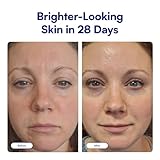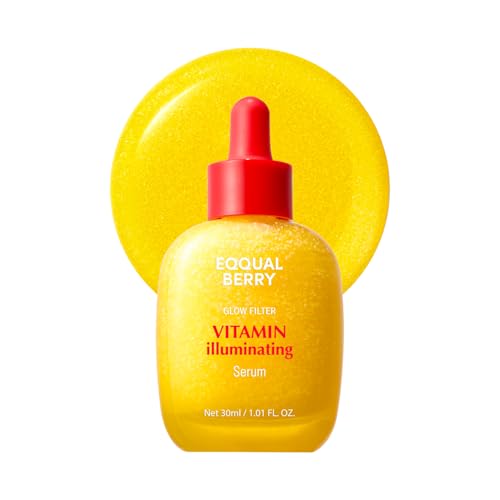Hyperpigmentation can affect anyone, manifesting as dark spots, melasma, post-acne marks, or uneven skin tone that leaves many feeling self-conscious about their complexion. If you’ve been searching for an effective solution to brighten and even out your skin, vitamin C serum has likely appeared on your radar. This powerful antioxidant has gained widespread attention for its ability to transform hyperpigmented skin, but what kind of results can you actually expect?
In this comprehensive guide, we’ll explore the real before and after results of using vitamin C serum for hyperpigmentation, including realistic timelines, scientific evidence, and expert tips for maximizing your results.
Hyperpigmentation Vitamin C Serum: Before and After Results – Key Takeaways
⚡ Quick Summary: What You Need to Know
Timeline for Results:
- Weeks 1-2: Brighter, more radiant complexion
- Weeks 3-4: Noticeable reduction in dark spot intensity
- Weeks 6-8: Significant lightening (up to 20% improvement)
- Week 12+: Maximum results (20-30% reduction in hyperpigmentation)
Key Benefits: ✓ Fades dark spots, sun damage, and post-acne marks
✓ Evens out skin tone and boosts radiance
✓ Reduces fine lines by 10-25% after 12 weeks
✓ Protects against future sun damage
✓ Works for all skin tones
The Bottom Line: Vitamin C serum requires consistency (daily use) and patience (3+ months for optimal results). Always pair with SPF 30+ sunscreen. Start with 10-15% concentration if you’re a beginner, or 15-20% for maximum effectiveness.
Best For: Sun damage, age spots, post-acne marks, uneven skin tone, dullness
Not A Quick Fix For: Deep wrinkles, severe melasma (needs combination therapy), instant overnight results
What Is Vitamin C Serum and Why Does It Work for Hyperpigmentation?
Vitamin C serum is a concentrated skincare formulation containing L-ascorbic acid, the most potent and bioavailable form of vitamin C. When applied topically, this powerful antioxidant penetrates the skin’s layers to address multiple skin concerns simultaneously.
The Science Behind Vitamin C and Hyperpigmentation
Hyperpigmentation occurs when melanin production goes into overdrive, creating darker patches on the skin. This can be triggered by sun exposure, hormonal changes, inflammation from acne, or the natural aging process and brown spots. Vitamin C combats hyperpigmentation through several mechanisms:
Melanin Inhibition: Vitamin C interferes with tyrosinase, the enzyme responsible for melanin production. By inhibiting this enzyme, it prevents the formation of new dark spots while gradually lightening existing ones.
Antioxidant Protection: Free radicals from UV rays and pollution accelerate melanin production and skin damage. Vitamin C neutralizes these free radicals, protecting your skin from further sun damage and hyperpigmentation. For those dealing with more severe sun damage like actinic keratosis, additional treatments may be necessary.
Collagen Stimulation: Beyond brightening, vitamin C boosts collagen synthesis, which helps improve overall skin texture and can make dark spots less noticeable as the skin becomes more even and refined.
Cell Turnover Enhancement: Vitamin C accelerates cell regeneration, helping to shed pigmented skin cells more quickly and reveal fresh, brighter skin underneath.
Vitamin C Serum Before and After: Timeline of Results
One of the most common questions about vitamin C serum is: “How long until I see results?” The truth is that vitamin C works progressively, with improvements accumulating over time. Here’s what you can realistically expect at different stages of consistent use.
Week 1-2: Initial Brightening
During the first two weeks, you’ll likely notice subtle changes in your skin’s overall appearance:
- Skin appears more radiant and refreshed
- Slight improvement in skin texture
- Complexion looks less dull
- Skin may feel smoother to the touch
At this stage, hyperpigmentation spots haven’t significantly faded yet, but your skin is beginning to respond to the vitamin C treatment. The antioxidant protection starts working immediately, though visible results take time.
Week 3-4: Noticeable Improvements
By the third and fourth weeks, the brightening effects become more apparent:
- Visible reduction in the intensity of dark spots
- More even skin tone overall
- Enhanced skin luminosity
- Dark spots begin to fade around the edges
- Improved skin texture and smoothness
Many users report that this is when they first notice their hyperpigmentation responding to treatment. The dark spots don’t disappear, but they start to lighten and become less prominent.
Week 6-8: Significant Transformation
At the six to eight-week mark, the cumulative effects of vitamin C become clearly visible:
- Dark spots are noticeably lighter (studies show up to 20% reduction)
- Skin tone is significantly more even
- Post-acne marks have faded considerably
- Skin appears plumper and more hydrated
- Overall complexion is brighter and more youthful
- Fine lines may be less visible due to increased collagen production
Week 12 and Beyond: Maximum Results
After three months of consistent daily use, vitamin C delivers its most impressive results:
- Dramatic reduction in hyperpigmentation (20-30% improvement)
- Wrinkles and fine lines reduced by 10-25%
- Substantially more even skin tone
- Enhanced skin firmness and elasticity
- Long-term protection against new dark spots forming
- Improved overall skin health and resilience
Clinical studies demonstrate that the most significant improvements in hyperpigmentation occur between 8-12 weeks of consistent use. After this point, continued use maintains results and provides ongoing protection.
Real Before and After Results: What to Expect
Understanding realistic expectations helps you stay committed to your vitamin C routine. Here’s what actual users experience when treating hyperpigmentation with vitamin C serum.
Dark Spots and Sun Damage
Vitamin C is particularly effective for sun-induced hyperpigmentation. Users typically see their sun spots become progressively lighter, with the edges fading first before the entire spot diminishes. While some spots may fade completely, others may lighten significantly but remain slightly visible. The key is that they become much less noticeable and blend better with your overall skin tone.
See Hyperpigmentation Vitamin C Serum: Before and After Results Below
Post-Acne Hyperpigmentation
Post-inflammatory hyperpigmentation (PIH) from acne responds well to vitamin C treatment. The dark marks left behind after breakouts can be stubborn, but vitamin C helps accelerate their natural fading process. Users often report that marks that would typically take 6-12 months to fade on their own diminish within 2-3 months with vitamin C serum. If you’re still dealing with active breakouts, you may also want to explore effective treatments for cystic acne to prevent future dark spots.
Melasma and Hormonal Pigmentation
Melasma, characterized by larger patches of pigmentation often triggered by hormones, can be more challenging to treat. While vitamin C alone may not completely resolve melasma, it can significantly lighten these patches when used consistently. Many dermatologists recommend combining vitamin C with other treatments like tranexamic acid or prescription options for optimal melasma management. For those using prescription hydroquinone, it’s important to know the best moisturizers to pair with it.
Overall Skin Tone and Radiance
Beyond targeting specific dark spots, vitamin C creates an overall brightening effect that evens out your complexion and makes your entire complexion more luminous. This “glow” effect is one of the first changes people notice and continues to improve with ongoing use.
Vitamin C Serum Before and After on Different Skin Tones
The effectiveness of vitamin C serum transcends skin color, making it suitable for all skin types and tones. However, there are some important considerations for different complexions.
Vitamin C for Dark Skin and Black Skin
People with darker skin tones often experience more noticeable hyperpigmentation because their skin naturally produces more melanin. The good news is that vitamin C is highly effective for dark skin when used properly. Many users with melanin-rich skin report excellent results in fading dark spots, evening out skin tone, and achieving a radiant complexion.
Key considerations for darker skin:
- Start with a lower concentration (10%) to assess tolerance
- Be patient – results may take slightly longer to become visible on very dark skin
- Combine with sunscreen religiously to prevent new hyperpigmentation
- Consider pairing with other brightening ingredients like niacinamide
- Look for formulations that include vitamin E and ferulic acid for enhanced stability and effectiveness
Vitamin C for Light and Medium Skin Tones
Lighter skin tones also benefit significantly from vitamin C serum for hyperpigmentation, particularly for sun damage and age spots. The contrast of dark spots may be more immediately visible on light skin, making the progressive fading easier to track. The same timeline and expectations apply, with many users seeing substantial improvements within 8-12 weeks.
How to Use Vitamin C Serum for Maximum Hyperpigmentation Results
Getting the best results from your vitamin C serum requires more than just applying it occasionally. Follow these guidelines to maximize your before and after transformation.
Step-by-Step Application
Morning Routine (Recommended)
- Cleanse: Start with a gentle, pH-balanced cleanser to remove oil and prepare your skin
- Tone: Apply toner if you use one (optional but can help with absorption)
- Apply Vitamin C Serum: Dispense 3-4 drops and gently press into clean, dry skin on your face and neck
- Wait: Allow 1-2 minutes for complete absorption
- Moisturize: Apply your regular moisturizer to lock in hydration
- Sunscreen: This step is non-negotiable – apply SPF 30 or higher to protect against UV-induced hyperpigmentation
Evening Routine (Optional)
While morning application is ideal for antioxidant protection, you can also use vitamin C at night. If you use retinol or other active ingredients at night, alternate them or use vitamin C in the morning and retinol at night to avoid potential irritation.
Choosing the Right Vitamin C Concentration
The concentration of vitamin C matters for both effectiveness and tolerability:
- 10-15% L-Ascorbic Acid: Ideal for beginners or sensitive skin
- 15-20% L-Ascorbic Acid: Best for most skin types and maximum effectiveness
- Above 20%: Higher concentrations don’t necessarily mean better results and may increase irritation risk
Most dermatologists recommend starting at 10-15% and working up if your skin tolerates it well. If you’re looking for affordable, effective vitamin C options, check out THE ORDINARY products for mature skin. There are many effective affordable options available at various price points.
Combining Vitamin C with Other Ingredients
Powerful Combinations for Hyperpigmentation:
Vitamin C + Hyaluronic Acid: This duo is incredibly synergistic. While vitamin C brightens and protects, hyaluronic acid provides deep hydration that plumps the skin and makes it more receptive to vitamin C’s benefits. Apply vitamin C serum before your hyaluronic acid product or use a formula that contains both.
Vitamin C + Vitamin E + Ferulic Acid: This triple combination, often called the “gold standard,” provides enhanced stability and effectiveness. Vitamin E and ferulic acid boost vitamin C’s antioxidant power and help it remain stable longer, maximizing results.
Vitamin C + Niacinamide: While there was once concern about combining these ingredients, research now shows they work well together for hyperpigmentation. Niacinamide complements vitamin C’s brightening effects.
Vitamin C + Tranexamic Acid: For stubborn hyperpigmentation and melasma, this combination offers powerful results. Tranexamic acid works through different mechanisms than vitamin C, providing synergistic brightening.
Ingredients to Separate:
- Vitamin C + Retinol: Use vitamin C in the morning and retinol at night to avoid irritation
- Vitamin C + AHA/BHA Exfoliants: Alternate days or use at different times (vitamin C in AM, exfoliants in PM)
- Vitamin C + Benzoyl Peroxide: These can oxidize each other, reducing effectiveness
Storage and Stability Tips
Vitamin C serum is notoriously unstable and can oxidize when exposed to light, air, and heat. To maintain potency:
- Store in a cool, dark place (not the bathroom)
- Choose opaque or dark glass bottles over clear ones
- Keep the cap tightly closed
- Discard if the serum turns yellow, orange, or brown
- Consider purchasing smaller bottles to use within 3 months of opening
Common Mistakes That Reduce Effectiveness
Avoid these pitfalls to ensure you get the best before and after results:
Inconsistent Use: Vitamin C requires daily application for optimal results. Missing days or using it sporadically significantly delays your progress.
Skipping Sunscreen: UV exposure triggers melanin production, essentially undoing vitamin C’s brightening work. Always wear SPF during the day, even when indoors.
Using Oxidized Product: If your vitamin C serum has changed color, it’s oxidized and ineffective. Don’t waste your time with degraded product.
Applying on Damp Skin: Water can dilute your vitamin C serum and reduce its effectiveness. Always apply to completely dry skin.
Expecting Overnight Results: Hyperpigmentation took time to develop and requires time to fade. Impatience leads to disappointment and product-hopping.
Using Too Much Product: More isn’t better with vitamin C. A few drops (3-4) is sufficient for your entire face and neck.
Vitamin C Serum Before and After: Real User Experiences
Beyond clinical studies, real-world results from actual users provide valuable insight into what you can expect.
Reddit Users Share Their Experiences
The skincare community on Reddit frequently discusses vitamin C serum results for hyperpigmentation. Common themes include:
- Most users report visible brightening within 3-4 weeks
- Post-acne marks show improvement faster than sun damage
- Consistency is repeatedly emphasized as the key to success
- Many users wish they had started using vitamin C sooner
- Combination with sunscreen is universally recommended
- Some trial and error with different formulations is common to find the right product
Clinical Study Results
Research backs up user experiences with measurable data:
- A 12-week study showed 20% reduction in dark spot intensity with 10% vitamin C
- Clinical trials demonstrate 10-25% reduction in fine lines after 12 weeks
- 66% of participants in studies show significant improvement in skin discoloration
- 100% of subjects in some trials show improvement in skin firmness with vitamin C use
- Combination formulas (vitamin C + E + ferulic acid) show superior results to vitamin C alone
Potential Side Effects and How to Manage Them
While vitamin C serum is generally well-tolerated, some people experience temporary side effects, especially when starting treatment.
Common Initial Reactions
Mild Tingling or Warmth: A slight tingling sensation upon application is normal, especially with higher concentrations. This should subside within a few minutes.
Redness or Flushing: Some temporary redness is common, particularly for sensitive skin. If it persists beyond 20-30 minutes, the concentration may be too high.
Dryness or Flaking: Vitamin C can be slightly drying initially. Combat this by using a good moisturizer and reducing application frequency until your skin adjusts. You might also benefit from gentle exfoliators for dry skin to remove flaky patches without irritation.
When to Be Concerned
Discontinue use and consult a dermatologist if you experience:
- Severe burning or stinging
- Persistent redness or irritation
- Rash or hives
- Increased skin sensitivity that doesn’t improve
- Worsening hyperpigmentation (rare but possible)
Tips for Sensitive Skin
If you have reactive skin prone to irritation:
- Start with a 10% concentration
- Apply every other day for the first week
- Gradually increase to daily use
- Patch test on a small area first
- Layer over moisturizer initially (buffering technique)
- Choose formulations with soothing ingredients like aloe or allantoin
Note: The delicate eye area may require special consideration. If you’re looking to address dark circles or puffiness along with hyperpigmentation, consider specialized under eye creams for mature skin.
Frequently Asked Questions About Vitamin C Serum and Hyperpigmentation
How long does vitamin C serum take to work for hyperpigmentation?
Most people begin seeing noticeable improvements in hyperpigmentation between 4-6 weeks of daily use, with optimal results appearing around 8-12 weeks. However, some lightening effects may be visible as early as 2-3 weeks.
Can I use vitamin C serum every day?
Yes, vitamin C serum is designed for daily use. Applying it every morning provides consistent antioxidant protection and progressive brightening benefits. For sensitive skin, you may start with every other day and work up to daily application.
Should I use vitamin C serum before or after moisturizer?
Always apply vitamin C serum before moisturizer. Serums are designed to penetrate deeply and should be applied to clean, dry skin. The moisturizer then helps seal in the serum and provides additional hydration.
Can I use vitamin C serum with retinol?
Yes, but not at the same time. Use vitamin C serum in your morning routine and retinol at night. This separation prevents potential irritation while allowing you to benefit from both powerful ingredients.
Will vitamin C serum completely remove dark spots?
While vitamin C can significantly lighten and often eliminate many types of hyperpigmentation, complete removal isn’t guaranteed for all dark spots. Results vary based on the depth and age of the pigmentation, skin type, and consistency of use. Most users see 20-30% improvement in dark spot intensity.
What’s the best concentration of vitamin C for hyperpigmentation?
For hyperpigmentation, concentrations between 15-20% L-ascorbic acid are generally most effective. However, sensitive skin should start at 10%, while those with more resilient skin can use up to 20%. Higher concentrations don’t necessarily mean better results.
Can vitamin C serum make hyperpigmentation worse?
When used correctly, vitamin C should not worsen hyperpigmentation. However, if you skip sunscreen while using vitamin C, UV exposure can trigger more melanin production. Additionally, some people may experience temporary purging or irritation that could lead to post-inflammatory hyperpigmentation if not managed properly.
Does vitamin C work for melasma?
Vitamin C can help lighten melasma, but it typically works best when combined with other treatments. Melasma is notoriously difficult to treat and often requires a multi-pronged approach including prescription treatments, strict sun protection, and patience.
Can I use vitamin C serum at night instead of morning?
While you can use vitamin C at night, morning application is preferred because it provides daytime antioxidant protection against UV rays and environmental stressors. If you use retinol at night, definitely reserve vitamin C for your morning routine.
How do I know if my vitamin C serum is still effective?
Fresh vitamin C serum should be clear to pale yellow. If it has turned dark yellow, orange, or brown, it has oxidized and lost effectiveness. Most vitamin C serums remain potent for 3-6 months after opening when stored properly.
Maximizing Your Before and After Results: Expert Tips
To achieve the most dramatic transformation in your hyperpigmentation, follow these expert recommendations:
Be Consistent and Patient
The number one factor determining success with vitamin C is consistency. Daily application over several months yields dramatically better results than sporadic use. Set a reminder, incorporate it into your routine, and commit to at least 12 weeks before evaluating effectiveness.
Protect Your Investment with Sunscreen
No matter how religiously you apply vitamin C, unprotected sun exposure will sabotage your results. UV rays trigger the same melanin production you’re trying to suppress. Make broad-spectrum SPF 30+ a non-negotiable final step in your morning routine. Learn more about the importance of applying sunscreen even when you’re at home.
Document Your Progress
Take photos in the same lighting at regular intervals (weekly or bi-weekly) to track your progress. It’s easy to forget where you started, and progress photos can be incredibly motivating when improvements feel gradual.
Address the Root Cause
If hormonal fluctuations, chronic inflammation, or repeated sun exposure are causing your hyperpigmentation, addressing these underlying factors alongside vitamin C treatment will yield better results.
Consider Professional Treatments
For stubborn hyperpigmentation, combining vitamin C with professional treatments like chemical peels, laser therapy, or microneedling can accelerate results. Always consult with a dermatologist to create a comprehensive treatment plan. You might also consider anti-aging serum alternatives that complement vitamin C’s benefits.
Maintain a Comprehensive Skincare Routine
Vitamin C works best as part of a complete skincare regimen that includes:
- Gentle cleansing
- Adequate hydration
- Sun protection
- Appropriate moisturization
- Complementary actives (retinol, niacinamide, etc.)
If you’re dealing with other skin concerns alongside hyperpigmentation, such as sebaceous hyperplasia or actinic keratosis, work with your dermatologist to develop a comprehensive treatment plan that addresses all your skin needs.
The Bottom Line on Vitamin C Serum for Hyperpigmentation
Vitamin C serum represents one of the most effective, well-researched, and accessible treatments for hyperpigmentation available today. The before and after results speak for themselves – when used consistently and correctly, vitamin C can transform uneven, spotted skin into a brighter, more radiant complexion.
The key takeaways for success:
- Realistic expectations: Visible improvements typically appear between 4-8 weeks, with optimal results at 12 weeks
- Consistency is critical: Daily application is necessary for progressive improvement
- Sun protection is mandatory: UV exposure will undermine your results
- Quality matters: Choose stable formulations with 10-20% L-ascorbic acid
- Patience pays off: Hyperpigmentation didn’t develop overnight and won’t disappear overnight
Whether you’re dealing with sun damage, post-acne marks, melasma, or general uneven skin tone, incorporating a quality vitamin C serum into your daily routine can lead to transformative results. While the journey requires patience and commitment, the before and after transformation many users experience makes vitamin C one of the most worthwhile investments in your skincare arsenal.
Remember that everyone’s skin responds differently, and individual results will vary based on skin type, the severity of hyperpigmentation, product quality, and consistency of use. If you have concerns about persistent hyperpigmentation or aren’t seeing results after 12 weeks of consistent use, consult with a dermatologist who can evaluate your skin and recommend additional treatments if needed.
With the right product, proper application, and realistic expectations, vitamin C serum can help you achieve the clear, even, radiant complexion you’ve been seeking – one day at a time.

Claudia Faucher is a fitness and lifestyle blogger who shares practical tips for women over 50 on staying active, stylish, and confident. As the creator of FitFab50.com and Beyond59.com, she covers topics like workout gear, beauty trends, and wellness routines. Claudia is passionate about helping others live their best life at any age.
Last update on 2026-02-28 / Affiliate links / Images from Amazon Product Advertising API











